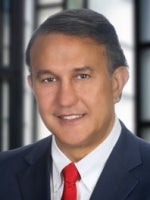In a recent Chancery decision involving challenges to executive compensation, Eckert v. Hightower, C.A. No. 2024-0569-MTZ (Del. Ch. March 24, 2025), the court reiterates the basic standards that determine if allegations can survive a motion to dismiss when the charter includes an exculpatory clause which requires that a majority of directors have demonstrated a breach of the duty of loyalty–that is, they have a disabling self-interest or if they acted in bad faith.
Background
- The court recites the well-known standards that determine if allegations can survive a motion to dismiss when the charter includes an exculpatory clause which requires that a majority of directors have demonstrated a breach of the duty of loyalty–that is, have a disabling self-interest or they acted in bad faith. In the particular circumstances of this case, the plaintiff failed to establish at the pleading stage that the directors had a “controlled mindset” or that they were subjected to a “substantial likelihood of liability” based on the claims presented. Concluding that the plaintiff did not satisfy the necessary threshold, the court did not have occasion to determine on a full record whether the compensation would be tested at trial.
Highlights
- The court restated several basis principles of corporate litigation in this context that are useful for future reference.
- The court reviewed the pleading requirements for pre-suit demand futility and the particularity requirements of Rule 23.1. See Letter op. at 8-9.
- The court emphasized that the 3-part demand futility test requires an analysis on a director-by-director basis of: (i) whether the director received a material personal benefit that is the subject of the litigation demand; (ii) whether the director faces a substantial likelihood of liability on any of the claims that would be the subject of the litigation demand; and (iii) whether the director lacks independence from someone who received the material personal benefit, or would face a substantial likelihood of liability on any of the claims that are the subject of the litigation. See footnote 47 and accompanying text.
- If the answer to any of the questions is yes for at least half of the members of the demand board, the demand is excused as futile. Id.
- Regarding the somewhat amorphous concept of whether a demand is excused because a director “faces a substantial likelihood of liability under claims that would be the subject of litigation demand,” the court discusses the various standards that apply to this fact-intensive analysis. See Letter op. at 11 to 18.
- The plaintiffs were required to meet a high threshold to establish a non-exculpated breach of the duty of loyalty by demonstrating a transaction that benefited the controlling stockholder and by overseeing an unfair process.
- The court described the concept of a “controlled mindset” and found that the plaintiff here did not have a controlled mindset that was tantamount to bad faith.
- The court also discussed the nuanced challenges in successfully alleging a controlled mindset. See Letter op. at 13.
- The court addressed the impact of the controlling stockholder attending some board meetings where compensation was discussed, but according to the minutes he apparently removed himself from discussions of his own compensation.
- Lastly, the court distinguished other cases involving similar demand futility issues in connection with challenges for executive compensation and disagreed with the plaintiff’s application of those cases. See Letter op. at 15-16.




 />i
/>i
